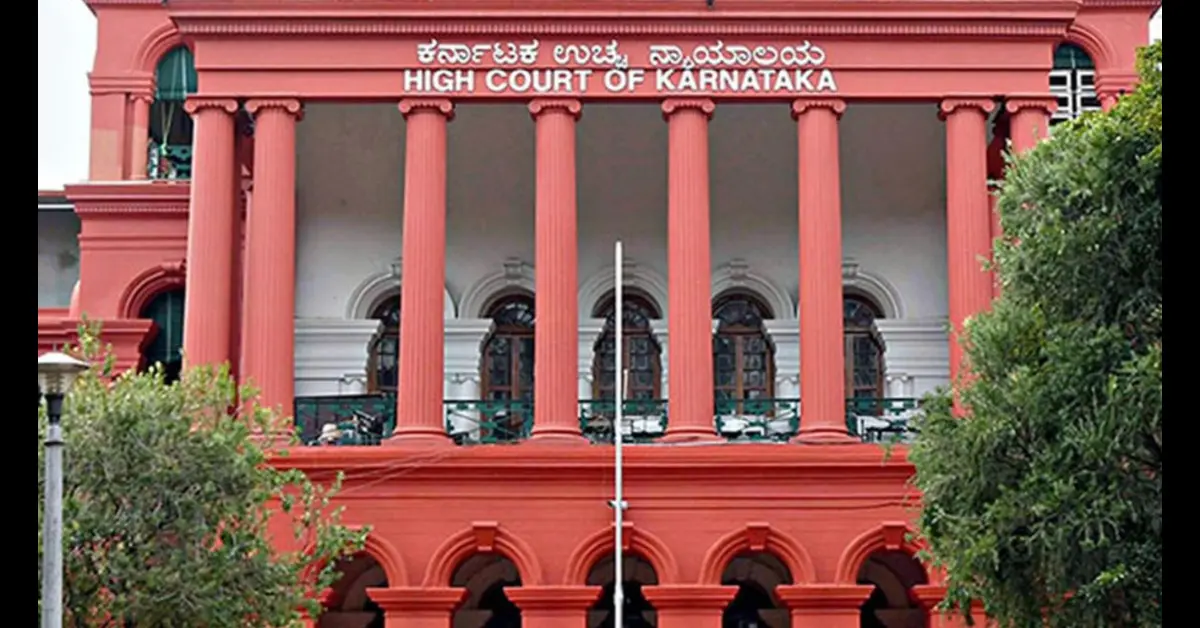Table of Contents
In a significant move towards ensuring transparency and protecting individual rights, the Karnataka High Court has mandated that police must provide a copy of the First Information Report (FIR) along with the notice when summoning any person for questioning. This landmark ruling is poised to have far-reaching implications for the legal and law enforcement processes in the state, reinforcing the importance of transparency and due process.
Understanding the Ruling
The Karnataka High Court’s directive addresses a crucial aspect of criminal investigation and procedural fairness. By mandating that a copy of the FIR be provided along with the notice for questioning, the court aims to enhance the procedural safeguards for individuals who are part of an investigation. This ruling ensures that individuals are informed about the specific allegations or charges against them, allowing them to prepare adequately for questioning and to seek legal counsel if necessary.
The Context and Background
The ruling stems from a case where the petitioner challenged the procedural lapses in the issuance of notices for questioning. The petitioner argued that not providing a copy of the FIR along with the notice violated their right to information and fair treatment under the law. The Karnataka High Court, after considering the arguments, issued this directive to uphold the principles of natural justice and transparency.
Implications of the Ruling
Enhanced Transparency
One of the primary implications of this ruling is the increased transparency in the investigative process. By ensuring that individuals are provided with a copy of the FIR, the court has taken a significant step towards making the investigative process more open and accountable. This move can help build trust between law enforcement agencies and the public.
Protection of Individual Rights
The directive is a strong affirmation of the protection of individual rights during criminal investigations. Police It acknowledges the importance of informing individuals about the nature of allegations against them, thus preventing any potential misuse of power by law enforcement agencies. This ruling ensures that individuals are not left in the dark about the reasons for their questioning.
Legal Preparedness
Having access to the FIR allows individuals to prepare their legal defense better. It gives them an opportunity to understand the specifics of the case, Police gather relevant evidence, and consult with their legal advisors. This preparation can significantly impact the fairness and outcome of the investigation.
Procedural Fairness
The court’s decision reinforces the importance of procedural fairness in criminal investigations. By mandating that a copy of the FIR be provided, the ruling ensures that the process aligns with the principles of natural justice, where individuals are given a fair chance to respond to allegations against them.
Challenges and Implementation
While the ruling is a positive step towards ensuring transparency and fairness, its implementation may pose certain challenges. Law enforcement agencies will need to adapt to this new requirement and ensure that their procedures are aligned with the court’s directive. This might involve additional administrative efforts to ensure that copies of FIRs are readily available and provided along with notices for questioning.
Training and Awareness
To effectively implement this ruling, it is essential for police personnel to be adequately trained and made aware of the new procedural requirements. Police Regular training sessions and workshops can help law enforcement officers understand the importance of providing FIR copies and the legal implications of non-compliance.
Monitoring and Compliance
Ensuring compliance with the court’s directive will require robust monitoring mechanisms. Independent oversight bodies or internal review systems can be established to regularly audit and ensure that the directive is being followed in spirit and letter. This can help identify any lapses and take corrective measures promptly.
Public Awareness
Raising public awareness about this new procedural requirement is equally important. Informing citizens about their right to receive a copy of the FIR when summoned for questioning can empower them to demand their rights and seek legal recourse if necessary. Police Public awareness campaigns through media and legal aid organizations can play a crucial role in this regard.
FAQs
What is the significance of the Karnataka High Court ruling regarding FIRs and notices for questioning? The ruling mandates that police provide a copy of the FIR along with the notice when summoning individuals for questioning, enhancing transparency and protecting individual rights.
How does this ruling impact the rights of individuals during criminal investigations? The ruling ensures that individuals are informed about the specific allegations against them, allowing them to prepare adequately for questioning and seek legal counsel if necessary.
What challenges might arise in implementing this ruling? Implementing this ruling may require additional administrative efforts, training for police personnel, and robust monitoring mechanisms to ensure compliance.
How can public awareness about this ruling be increased? Public awareness campaigns through media, legal aid organizations, Police and community outreach programs can inform citizens about their rights under this new directive.
What steps can law enforcement agencies take to comply with this ruling? Law enforcement agencies can conduct regular training sessions for officers, establish internal review systems, and ensure that FIR copies are readily available to comply with the court’s directive.
What are the broader implications of this ruling for the legal system in Karnataka? The ruling reinforces the principles of transparency, procedural fairness, and the protection of individual rights, setting a precedent for other states to follow in ensuring due process in criminal investigations.
Karnataka Police Open Fire at Criminals Who Chopped Off Dalit Man’s Hand to Arrest Them
Conclusion
The Karnataka High Court’s directive to provide a copy of the FIR along with the notice for questioning marks a significant advancement in the pursuit of transparency and fairness in the criminal justice system. This ruling not only protects individual rights but Police also fosters trust and accountability in law enforcement practices. Police As this directive is implemented, it will undoubtedly contribute to a more just and equitable legal process, benefiting both the public and the law enforcement agencies in Karnataka.
